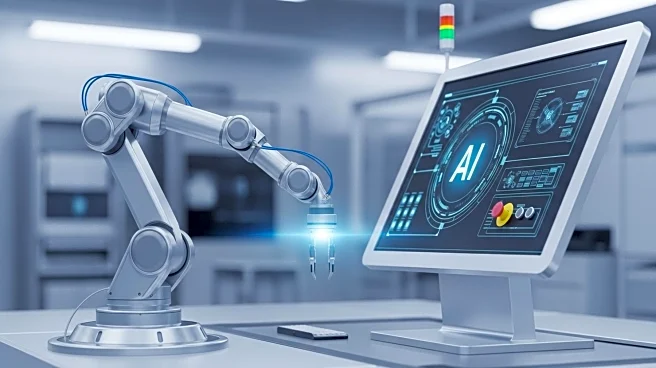What's Happening?
Xometry, Inc., a global AI-powered marketplace for manufacturing services, has released its first Manufacturing Outlook report, which outlines key trends expected to shape the industry by 2026. The report, based on research with manufacturing executives from the U.S., U.K., and Europe, identifies artificial intelligence (AI) as a critical growth driver, with 82% of executives acknowledging its importance. The report also highlights the increasing need for agility, with 74% of executives planning to reshore operations to enhance digital workflows. Rising customer expectations and the need for stable sourcing strategies are also emphasized, with 54% of executives noting higher quality demands and 76% planning price increases. The report serves as a guide for decision-makers to navigate technological advancements and cost pressures.
Why It's Important?
The findings of Xometry's report underscore the transformative impact of AI on the manufacturing sector, positioning it as a vital tool for enhancing efficiency and innovation. As manufacturers face rising costs and global disruptions, the adoption of AI and agile practices could provide a competitive edge. The emphasis on reshoring and digital workflows reflects a shift towards more resilient and adaptable manufacturing processes. This trend could lead to significant changes in supply chain management and operational strategies, potentially benefiting companies that invest in these areas. The report's insights into customer expectations and pricing strategies highlight the evolving market dynamics that manufacturers must address to remain competitive.
What's Next?
Manufacturers are likely to continue integrating AI and digital solutions into their operations to meet the challenges outlined in the report. Companies may also explore strategic partnerships and diversify their supplier networks to enhance stability and competitiveness. As the industry adapts to these trends, stakeholders, including policymakers and industry leaders, may need to consider supportive measures to facilitate this transition. The report's findings could influence future investment decisions and policy frameworks aimed at fostering innovation and resilience in the manufacturing sector.








